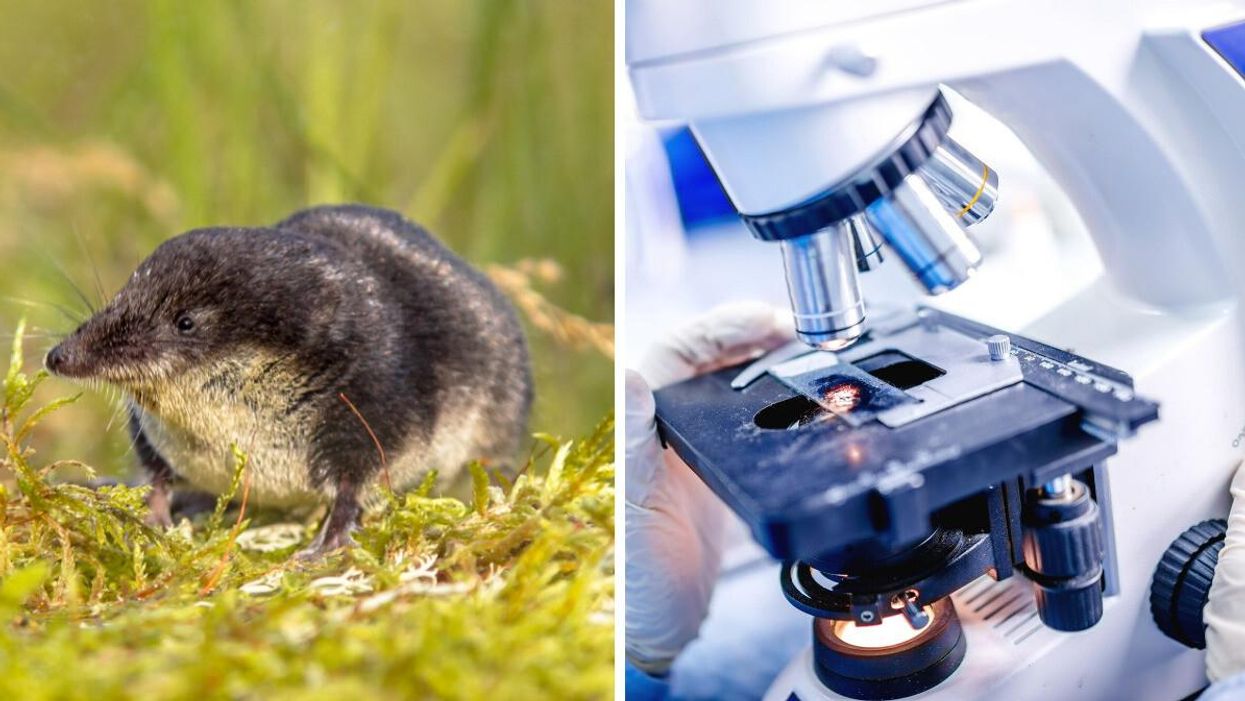A New 'Langya' Virus Has Spread To 35 Humans In China & Here's What We Know About It
The virus spread from animals to humans.

Shrew. Right: Researchers look at a specimen under a microscope.
Scientists in China and Taiwan are reporting several cases of a new animal-borne virus that has since spread to humans, although they're not sounding the alarm just yet.
The virus, called Langya henipavirus or LayV, has infected 35 people to date in eastern China, according to a letter published by researchers in the New England Journal of Medicine on Thursday.
All but nine of the patients were infected with LayV alone, according to the letter. The most common symptoms of the disease included fever, fatigue, coughing and loss of apetite, although a minority of patients also reported muscle aches, nausea, headache and vomiting.
No deaths or serious cases have been reported among those 35 patients.
Researchers also found the virus in several species of wild animals, including shrews. They say shrews were the predominant carriers and "may be a natural reservoir" of the newly identified virus.
So what does it all mean?
The researchers say that based on what they've found, the disease seems to have passed from animals to humans on a "sporadic" basis, and they've found no evidence of the virus transmitting from human to human. That last bit is what makes viruses spread more quickly, as with the coronavirus that causes COVID-19.
They say they're doing contact tracing to get more info, "but our sample size was too small to determine the status of human-to-human transmission for LayV."
Researcher Lin-Fa Wang, from the Duke-NUS Medical School in Singapore, said public health officials should be on alert based on the findings. He told China's state-run Global Times that there's no need to panic, although it's important to monitor new viruses such as this one.
"Coronavirus will not be the last infectious disease to cause a pandemic worldwide, as new infectious diseases will have an increasingly greater impact on human daily life," Xinyu Wang, the deputy chief physician for the infectious diseases department at Huashan Hospital in Shanghai, told Global Times.
According to the CDC, henipaviruses are a genus of viruses that includes the Nipah virus, which was responsible for the death of a 12-year-old in India last year.
However, researchers suggest that LayV is most closely related to the Mojiang henipavirus, which the CDC says is "not known to cause human disease."
There are no vaccines or antiviral treatments for henipavirus infections in humans, according to the CDC. The best way to avoid infection is to stay away from animals and their feces that might be infected and to avoid consuming "raw date palm sap or products made from raw sap."
This article's cover image was used for illustrative purposes only.